How To Create A Column Of Numbers In Excel
- Login
- Cart
- Training
- Videos
- Functions
- Formulas
- Shortcuts
- Blog
Excel COLUMN Function
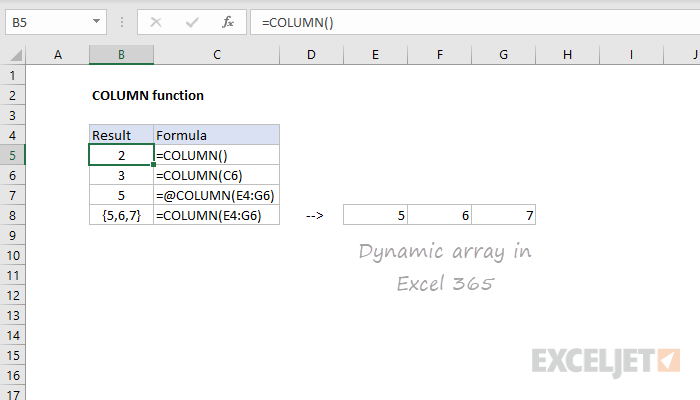
Summary
The Excel COLUMN function returns the column number for a reference. For example, COLUMN(C5) returns 3, since C is the third column in the spreadsheet. When no reference is provided, COLUMN returns the column number of the cell which contains the formula.
Purpose
Get the column number of a reference.
Return value
A number representing the column.
Arguments
- reference - [optional] A reference to a cell or range of cells.
Usage notes
The COLUMN function returns the column number of a reference. For example, COLUMN(C5) returns 3, since C is the third column in the spreadsheet. COLUMN takes just one argument, called reference, which can be empty, a cell reference, or a range. When no reference is provided, COLUMN returns the column number of the cell which contains the formula.
Examples
With a single cell reference, COLUMN returns the associated column number:
When a reference is not provided, COLUMN returns the column number of the cell the formula resides in. For example, if the following formula is entered in cell D6, the result is 4:
When COLUMN is given a range, it returns the column numbers for that range:
= COLUMN (E4:G6) // returns {5,6,7}
In Excel 365, which supports dynamic array formulas, the result is an array {5,6,7} that spills horizontally into three cells, starting with the cell the formula resides in. In earlier Excel versions, the first item of the array (5) will display in one cell only.
To get Excel 365 to return a single value, you can use the implicit intersection operator (@):
This @ symbol disables array behavior and tells Excel you want a single value.
Notes
- Reference can be a single cell address or a range of cells.
- Reference is optional and will default to the cell in which the COLUMN function exists.
- Reference cannot include multiple references or addresses.
- To get row numbers, see the ROW function.
- To count columns, see the COLUMNS function.
- To lookup a column number, see the MATCH function.
Related functions
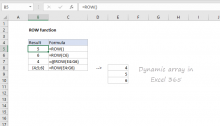
The Excel ROW function returns the row number for a reference. For example, ROW(C5) returns 5, since C5 is the fifth row in the spreadsheet. When no reference is provided, ROW returns the row number of the cell which contains the formula.
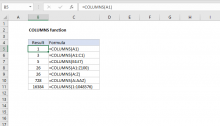
The Excel COLUMNS function returns the count of columns in a given reference. For example, COLUMNS(A1:C3) returns 3, since the range A1:C3 contains 3 columns.
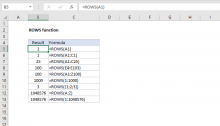
The Excel ROWS function returns the count of rows in a given reference. For example, ROWS(A1:A3) returns 3, since the range A1:A3 contains 3 rows.
Download 100+ Important Excel Functions
Get over 100 Excel Functions you should know in one handy PDF.
Excel video training
Quick, clean, and to the point.
Learn more
How To Create A Column Of Numbers In Excel
Source: https://exceljet.net/excel-functions/excel-column-function
Posted by: govanloded1954.blogspot.com

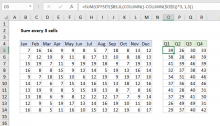
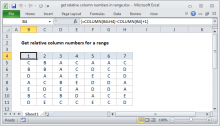
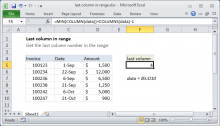
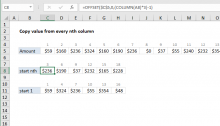
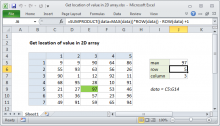
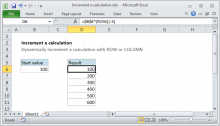
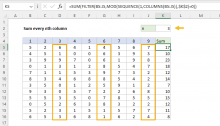
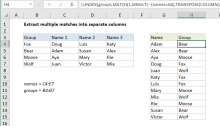
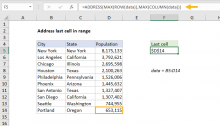
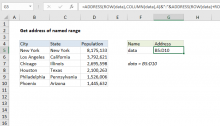
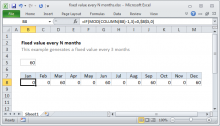
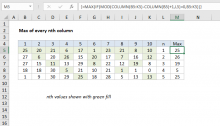
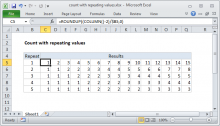
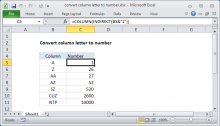
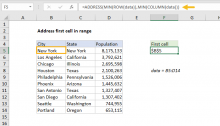

0 Response to "How To Create A Column Of Numbers In Excel"
Post a Comment